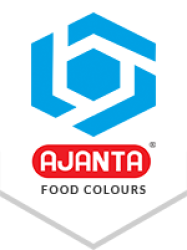Indonesia is a vibrant country located in Southeast Asia, known for its stunning natural landscapes, rich cultural heritage, and diverse population. With over 17,000 islands, Indonesia offers a unique blend of traditions, languages, and cuisines.
When it comes to manufacturing, Indonesia has seen significant growth in recent years. The country boasts a thriving manufacturing sector, with industries ranging from cosmetics and pharmaceuticals to food processing. These industries play a crucial role in driving the country's economy and providing employment opportunities for millions of Indonesians.
Manufacturing industries require many components to produce finished products. Each component plays a vital role in ensuring the quality and functionality of the final product. Among these components, one of the most important is colour.
Colour plays a crucial role in manufacturing industries, especially in sectors like food, cosmetics, and beverages. It helps manufacturers create visually appealing products that attract customers and differentiate their brands from competitors. Colour plays a significant role in shaping consumer preferences and driving sales.
In Indonesia, manufacturers understand the importance of colour in their products. They invest in high-quality pigments, dyes, and colourants to ensure that their products meet the expectations of customers both domestically and internationally. To fulfill the demand of colours in the country Indonesia imports colours from other countries such as India, South Korea, China, etc.
Indonesia Industries Where Colours Play a Vital Role
In Indonesia, colours play a vital role in many industries. Here are some examples of industries where colours play a significant role.
Food and Beverage Industry
In finding the right colourants for their food and beverage products Indonesian manufacturers face some challenges. They need colours that not only meet quality standards but also provide stability throughout the production process and shelf life. Synthetic colours come to the rescue by offering a solution to these problems. With synthetic colours, manufacturers can ensure consistent colouration, longer shelf life, and compliance with regulatory requirements. This boosts consumer confidence and ultimately leads to increased sales for manufacturers. The benefits of synthetic colours in the food and beverage industry of Indonesia extend beyond quality and stability, these colours also enhance product appeal, allowing brands to stand out in a competitive market. In Indonesia, many suppliers purchase colourants in bulk quantities from other countries and sell them to different businesses in Indonesia. Some suppliers sell under the company’s brand name they bought them from, while others create their own labels and sell the colourants under their brand name. Major manufacturing hubs for the food and beverage industry in Indonesia include Jakarta, Surabaya, Bandung, and Medan, where a significant portion of the country's manufacturing activity is concentrated. The food and beverage industry contributes substantially to Indonesia's economy, generating significant revenue through domestic consumption and exports, making it a crucial sector for economic growth and development. The food and beverage market of Indonesia is expected to earn around US$10.47 million in 2022, and it is predicted to grow at a rate of approximately 14.06% every year until 2027. Therefore, by 2027, the market is expected to be valued at around US$19.53 million.
Cosmetics Industry
Choosing the right colours for cosmetic products is not an easy task for Indonesian manufacturers. They have to consider different skin tones and colour stability. Synthetic colours solve these issues as they provide a wide range of vibrant hues that remain consistent over time, unlike natural alternatives prone to variations. Synthetic colours make cosmetic products such as lipstick, eyeliners, foundation, blush, eyeshadow, etc, more appealing and bright, which makes cosmetic products attractive and distinctive. This can help manufacturers build a strong brand image and increase customer loyalty and sales. colours are very important in the Indonesian beauty market, where consumers have diverse and dynamic tastes. Most cosmetic manufacturers are located in big cities like Jakarta, Bandung, and Surabaya, where they have access to better facilities, workers, and markets. The Indonesian Cosmetics market is growing fast, with a revenue of US$7.5 billion in 2021, and is expected to grow by 6.5% every year from 2023 to 2025. This means more choices for consumers and more competition for manufacturers.
Pharmaceutical Industry
Indonesian pharmaceutical manufacturers often grapple with challenges when selecting the appropriate colours for their products. Issues such as ensuring high quality, stability, and compatibility with different formulations can be daunting. However, synthetic colours are a great choice for Indonesian pharmaceutical manufacturers who want to overcome the challenges of choosing the right colours for their products. Synthetic colours have many benefits, such as consistent quality, stability, and versatility. They can be used with different types of medicines, such as tablets, capsules, syrups, and more. Synthetic colours also help to improve the appearance and shelf life of the products, which can enhance the patient's experience and satisfaction. This also helps the manufacturer establish their product as a trusted brand in the market. In Indonesia, many large distributors import colourants from other countries and then distribute them to companies. Some distributors sell these colourants under the brand name they bought them from, while others create their own labels and sell them under their own branding. Most of the pharmaceutical manufacturing industries in Indonesia are located in big cities like Jakarta, Bandung, Surabaya, and Semarang. The pharmaceutical market in Indonesia is projected to generate revenue of US$3.35 billion in 2023 and is expected to reach US$4.45 billion by 2028, experiencing a compound annual growth rate (CAGR) of 5.84%.
Chocolate Industry
One of the challenges faced by chocolate manufacturers in Indonesia is choosing the right colours for their products. Colours can affect the appearance, quality, and stability of chocolates, as well as the consumers' preferences and perceptions. Synthetic colours are the solution to this problem, as they offer a wide range of shades, consistent quality, and long-lasting stability. Moreover, synthetic colours undergo rigorous safety assessments, making them suitable for consumption, especially by children. Their vibrant hues not only appeal to children but also attract women, contributing to increased sales for chocolate manufacturers. By using synthetic colours, chocolate manufacturers can boost their sales, enhance their brand image, and differentiate their products from competitors. Colourant merchants in Indonesia buy colourants from local or foreign sources at low prices. They supply these colourants to different sectors such as food and drinks, cosmetic products, and medicine, at higher prices, earning a margin on each transaction. They may also give discounts or rewards to attract clients. By handling their stock well and offering quality customer service, colourant merchants can boost their sales and profits. Ajanta Food Colours is a reliable producer of food colourants that delivers high-quality products at reasonable prices. Many merchants and distributors pick Ajanta because they appreciate its quality and affordability. Indonesia has many chocolate-making industries, especially in Java, Sumatra, and Sulawesi, where cocoa beans are cultivated and processed. The Income of the Confectionery market of Indonesia reach US$41.38bn in 2024. The market is projected to grow yearly by 7.22% (CAGR 2024-2028).
Animal Feed Industry
Indonesian animal feed manufacturers face many problems when choosing the right colours for their products. They want colours that are safe for animals, good quality, and compliant with regulations. Natural colours can change or fade over time, and they are so expensive. Synthetic colours can solve these problems. Synthetic colours are stable and reliable, and they keep their colour for a long time. They also have many vibrant and bright colours, so the manufacturer makes products that look nice and catch the eye of the customers. Synthetic colours can help Indonesian animal feed manufacturers boost sales and make their product brands. Moreover, synthetic colours can help buyers identify and differentiate between various types of animal feed, such as poultry, swine, or cattle. The animal feed industry is a major sector in Indonesia's economy, as it supports the production of meat, dairy, eggs, and other animal products. Most of the animal manufacturing industries of Indonesia are located in Jakarta, Surabaya, and Bandung, where there are many competitors in the animal feed market. The Indonesian animal feed market was worth US$ 7.9 Billion in 2022. It is expected to grow to US$ 10.6 Billion by 2028, with a growth rate of 4.8% per year from 2023 to 2028.
Cultural Preferences of Colours in Indonesia
Indonesia is a country with rich and diverse cultural traditions. One of the aspects that reflects its culture is the use of colours. Colours have different meanings and associations for different ethnic groups, religions, and occasions in Indonesia. For example, red and white are the colours of the national flag and symbolise courage, purity, and independence. Green is associated with Islam and justice. Yellow is a sign of mourning and respect for the deceased. Black represents death and darkness, while white represents life and purity.
Manufacturers of various products in Indonesia need to be aware of these cultural preferences and use colours strategically to attract customers and boost sales. For example, food and beverages that use red, green, or yellow colours can appeal to customers who associate these colours with freshness, health, or sweetness. Chocolates that use dark brown or black colours can convey a sense of richness, quality, or indulgence. Cosmetics that use white, pink, or purple colours can suggest beauty, elegance, or femininity. By understanding the cultural meanings and preferences of colours in Indonesia, manufacturers can create products that resonate with their target market and increase their brand recognition and loyalty.
Regulatory Guidelines on Colours in the Indonesian Market
In Indonesia, the use of colours in products such as food, beverages, pharma, cosmetics, etc. is regulated by the Food and Drug Monitoring Agency (BPOM). The BPOM issues guidelines and criteria for the distribution and safety of these products, as well as the labeling and packaging requirements. The BPOM also supervises the quality and nutrition of food products, as well as the halal certification for consumer products in general. These regulations help the customers to make informed choices and protect their health and well-being. Manufacturers need to comply with these regulations to ensure their products meet the standards and avoid legal sanctions or product recalls.
Ajanta Food Colours is a top manufacturer of colourants with over 75+ years of experience. Renowned worldwide for its high-quality colours, Ajanta exports its colourants to various Asian countries including Indonesia, Malaysia, Vietnam, and the Philippines.
The company holds several certifications guaranteeing the safety and quality of its products, such as FDA certificate, an ISO 9001:2015 certificate for its quality management system, a HACCP certificate for its food safety system, a HALAL certificate for its compliance with Islamic dietary laws, a KOSHER certificate for its compliance with Jewish dietary laws, etc.
Startups entering the Indonesian market face tough competition from established brands. Ajanta Food Colours offers premium, high-quality colours that help these startups differentiate their products, making them more attractive to customers. This boosts product visibility and sales.
For Indonesian businessmen seeking a reliable colourant exporter, Ajanta Food Colours is an excellent choice. The company offers competitive prices, timely delivery, customized solutions, and technical support, ensuring cost-effectiveness and clients satisfaction.
With a wide range of colours, Ajanta caters to diverse market needs while maintaining consistent quality and performance. Their focus on clients satisfaction makes them a trustworthy partner for businesses seeking high-quality colour solutions in Indonesia.
To know more about Ajanta Food Colours and its Supra range of colours, or for any other information, please contact us today!





